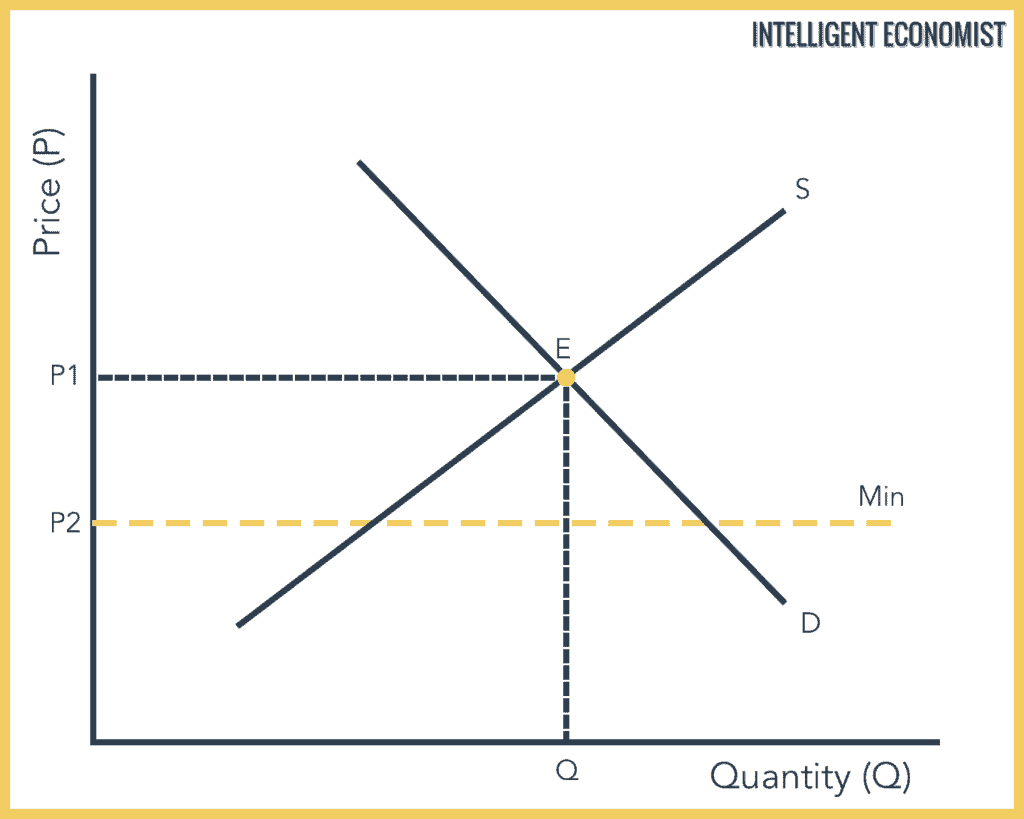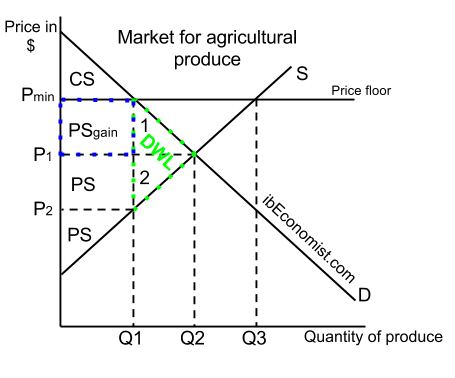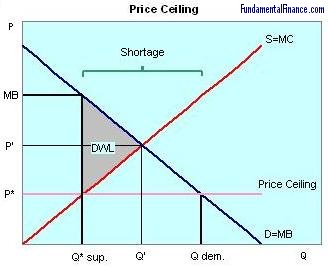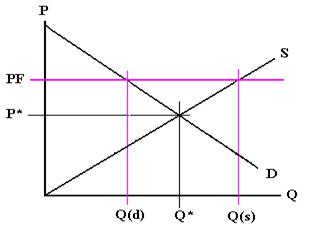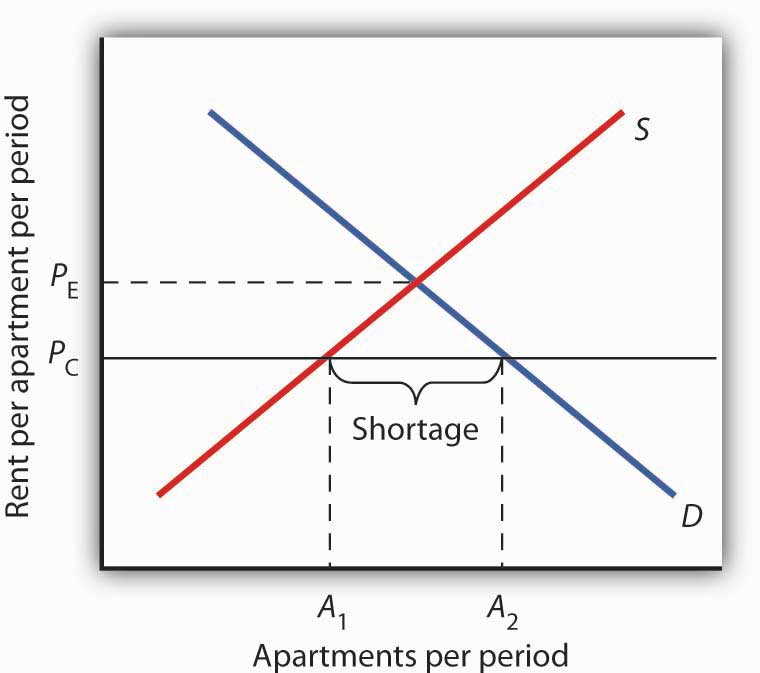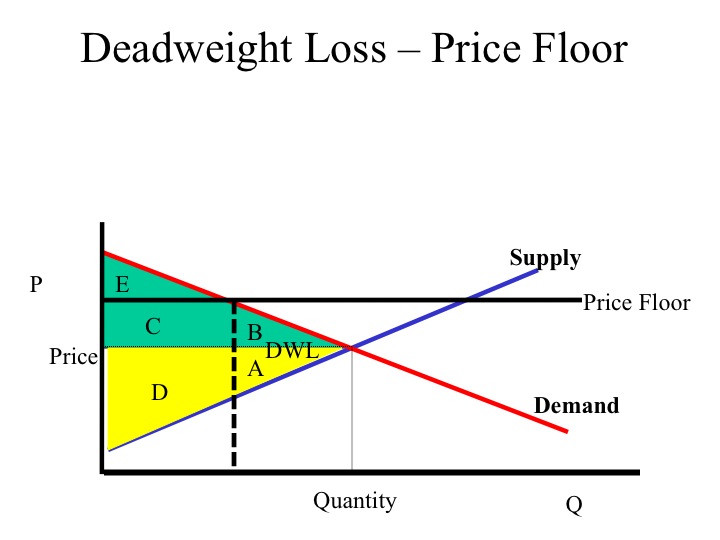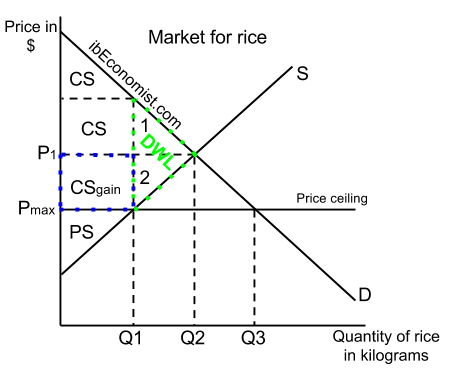Price Floor Bigger Than Equilibrium Price Dead Weight

D consumers are willing to make purchases only if the price is below the actual price.
Price floor bigger than equilibrium price dead weight. What will happen to producer surplus. This method will be an important gauge for all our policy analysis in this topic. There would be dead weight loss because the quantity transacted with the price floor qi is less than the efficient equilibrium quantity qd. Only a price floor above equilibrium or a price ceiling below equilibrium is binding.
For example many governments intervene by establishing price floors to ensure that farmers make enough money by guaranteeing a minimum price that their goods can be sold for. Drawing a price floor is simple. If it s not above equilibrium then the market won t sell below equilibrium and the price floor will be irrelevant. Simply draw a straight horizontal line at the price floor level.
The government sets a limit on how high a price can be charged for a good or service. Now suppliers in the market receive a price larger than the. A sellers are willing to take a lower price than the equilibrium price. Dead weight loss has fallen as is illustrated by the shaded area.
For a price floor to be effective the minimum price has to be higher than the equilibrium price. Price ceilings and rent controls can also create deadweight loss by discouraging production and decreasing the supply of goods services or housing below what consumers truly demand. When the price floor is set above the equilibrium price there would be excess supply at the floor price since the quantity supplied qs exceeds the quantity demanded qd. If you re seeing this message it means we re having trouble loading external resources on our website.
For a price floor to be effective it must be set above the equilibrium price. The most common example of a price floor is the minimum wage. Consider figure 4 5b where the. This graph shows a price floor at 3 00.
However this is the minimum loss to society associated with a price floor. The deadweight loss illustrated in figure 5 6 dead weight loss of a price floor is the difference between the value of the units not traded and value is given by the demand curve and the cost of producing these units. To find out the impact of government s price ceiling we must calculate market surplus before and after a policy. Suppose that supply is perfectly elastic and demand is perfectly inelastic.
It is represented by the shaded triangular shaped region. B consumers are willing to pay more than the equilibrium price. By the shaded area. Suppose that a price floor is set above equilibrium price.
The government sets a limit on how low a price can be charged for a good or service. How does quantity demanded react to artificial constraints on price. Causes of deadweight loss.


